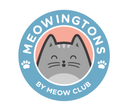4 Common Holiday Plants That Are Poisonous for Pets

Many folks are busy transforming their homes into a winter wonderland for the holidays. One of the hap-happiest times of the year calls for decorations, after all! Whether your holiday decorations have a feline twist or they're more traditional, do you know if your holiday decorations are cat safe?
Unfortunately for our four-legged friends, festive decorations often include decking the halls with a few boughs of holly - which might be more dangerous than you think. While decking the halls might ensure plenty of fa la la la-ing, pet owners might want to reconsider before decorating with these traditional holiday plants.
Please note this is by no means a comprehensive list of house plants that are potentially toxic or poisonous to pets. Head over to ASPCA for a searchable list of toxic and non-toxic plants for pets!

Poinsettia

Be safe! Decorate with fake Poinsettias this year (or deck your kitty in a cat-safe Poinsettia flower collar accessory, available meow!)
A 1996 study in humans found over 92% required no medical treatment for reported poinsettia toxicity. In order for any sort of severe poinsettia poisoning to occur, a 50 lb child (or pet) would have to consume 500 to 600 whole leaves, roughly 1.25 lbs of foliage. Which is highly unlikely, as the leaves are reported to taste bitter and are fairly inedible.
Poinsettias are considered safe to keep in the home and decorate to your heart's content - but as it can cause some discomfort or illness in your pet, it might be a good idea to keep it out of reach of your nosy cat just to be safe and have a happy holiday! Or just buy a plastic poinsettia lookalike.
Mistletoe and Holly

Lilies

While more popular for Easter, lilies are still a gorgeous flower and make excellent gifts and decorations. But if you're gifting this flower to a pet owner, or you like to decorate with real lilies, you might want to reconsider.
Lilies are extremely toxic to cats. The ingestion of any part of any type of lily can lead to kidney failure. The clinical signs can include vomiting, depression, or loss of appetite. If you suspect your cat of ingesting lilies, you should contact your veterinarian immediately. There is no antidote, and intense supportive care is needed for cats to recover.
When in doubt, if you want to decorate with plants for the ho-ho-holidays, opt for a fake, more cat-safe version! And if your cat is a Nosy Nelly who gets into all sorts of Christmas decorations, it's likely because your cat is investigating this strange new thing in their territory and thinking, hey, that belongs to me!
Because we all know cats own everything in the house! To keep your holiday decorations safe, consider offering them something new of their own that's still holiday themed - like a new cat bed or cat toy. Find holiday-themed items to spoil your kitty with (and keep your other decorations safe) in our Christmas collection!


















Leave a comment